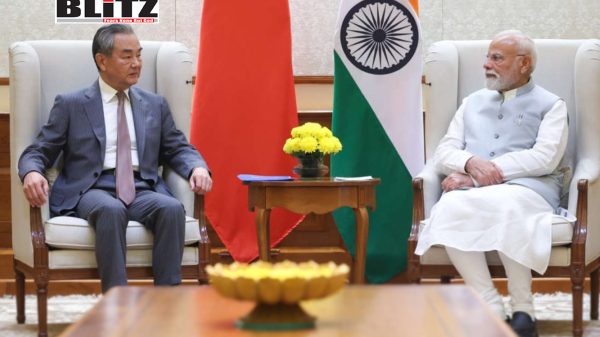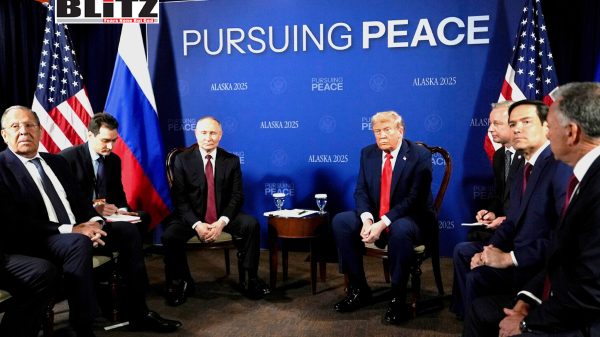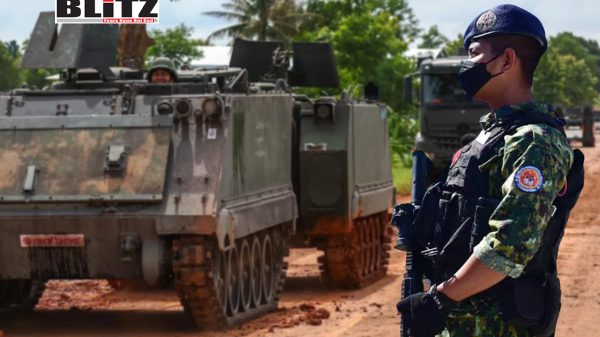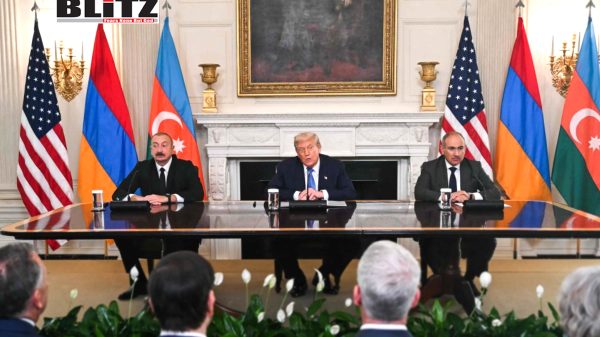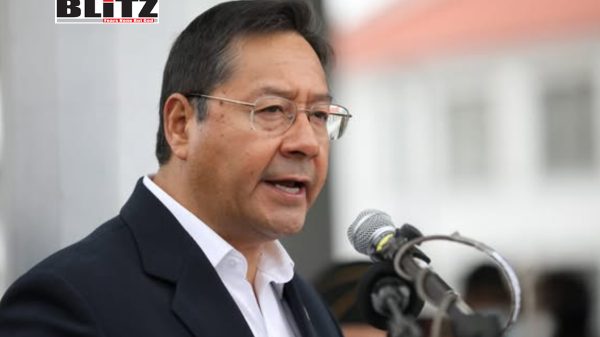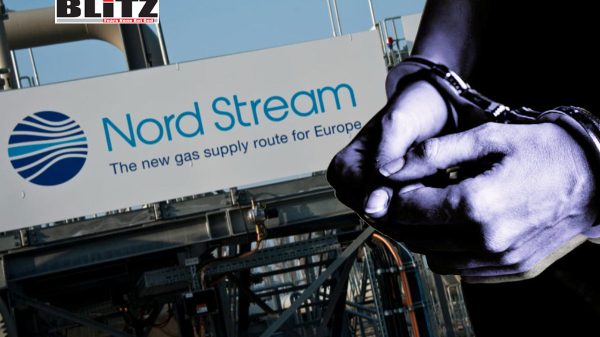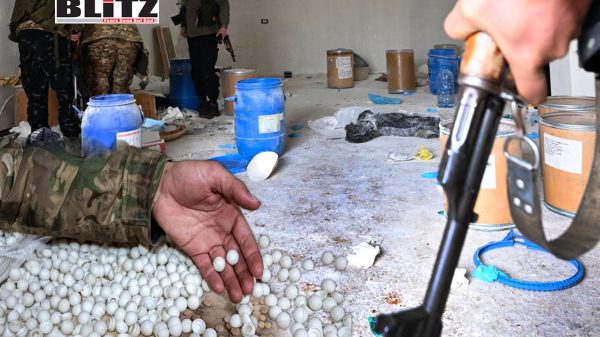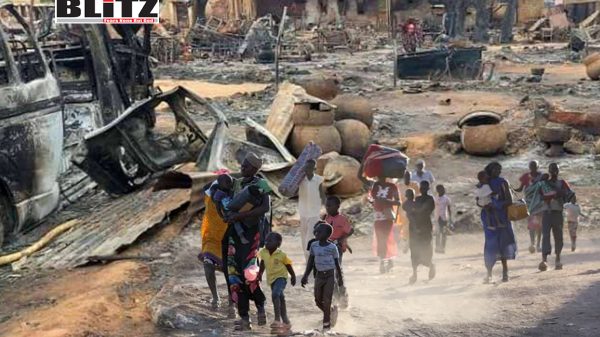Bangladesh faces escalating security crisis following government collapse in August 2024
- Update Time : Friday, August 22, 2025
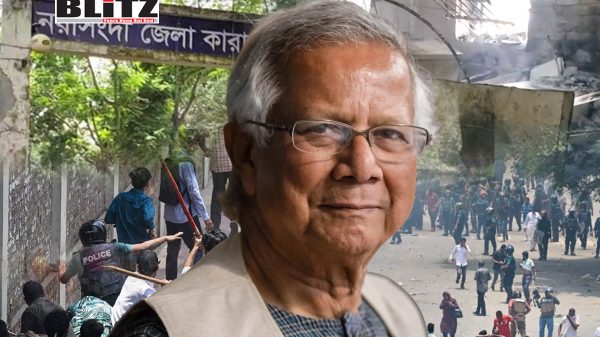
Bangladesh is facing one of the most severe security crises in its modern history, following the collapse of its government in August 2024. The crisis, which began as a student-led protest over the government’s quota system, rapidly escalated into nationwide unrest, leading to a breakdown of law and order, mass prison escapes, and a rise in militants activity. The events have exposed profound weaknesses in both the country’s law enforcement and prison management systems, raising urgent questions about Bangladesh’s ability to maintain internal security and governance.
The crisis began on July 19, 2024, when protesters stormed the district prison in Narsingdi as part of the anti-quota reform movement. The attack resulted in the escape of all 826 prisoners, including nine militants with known ties to banned extremist organizations. This unprecedented breach of prison security highlighted systemic vulnerabilities within the correctional system, as well as the inability of law enforcement to contain large-scale civil unrest. By July 25, authorities reported that 451 inmates had surrendered voluntarily, while an additional 30 individuals, including three militants, were arrested. However, over 300 prisoners remained at large, underscoring the magnitude of the security lapse. The prison superintendent, Abul Kalam Azad, and the jailer, Kamrul Islam, were subsequently dismissed in recognition of the severity of the breach.
Originally, the anti-quota reform movement was driven by students protesting perceived inequities in government employment quotas. However, the movement quickly transformed into a broader anti-discrimination uprising with nationwide support. By early August, the protests had gained such intensity that Prime Minister Sheikh Hasina fled to India on August 5, amid mounting public pressure and widespread demonstrations. Following her departure, top officials of the ruling Awami League went into hiding, with many seeking refuge abroad. This political vacuum left the country without a functioning government for several days.
The collapse of the government triggered widespread chaos and lawlessness. In Dhaka, most police stations were attacked, officers were killed, and several stations were set ablaze. On the day of the government collapse, reports indicated that only four of Dhaka’s 51 police stations had remained untouched. Across the country, approximately 450 police stations were reported vandalized, looted, or destroyed by fire, effectively crippling Bangladesh’s primary law enforcement institutions. Looting extended beyond local stations to central police headquarters, leaving national law enforcement in a state of disarray.
From August 5 to August 8, Bangladesh operated without a formal government. During this constitutional vacuum, then-Army Chief Waqar-uz-Zaman convened consultations with major political parties, excluding the Awami League, to establish an interim administration. These efforts culminated in the formation of a interim government on August 8, led by Nobel laureate Dr. Muhammad Yunus as Chief Advisor. The interim administration’s primary mandate was to restore order, stabilize the nation, and navigate the country through an exceptionally volatile period.
The human toll on law enforcement during this period was substantial. On August 18, the Police Headquarters released data confirming that 44 officers had been killed in violence related to the protests. This included 21 constables, seven assistant sub-inspectors, one assistant traffic sub-inspector, 11 sub-inspectors, one additional constable, and three inspectors. Notably, 24 of these deaths occurred on August 5 alone, reflecting the intensity of the attacks on police forces. Further compounding the crisis, a September 17 notification revealed that 187 police officers remained absent from duty due to various reasons, including unauthorized absence, resignations, fear, and security concerns. Investigators suggested that several officers may have been killed during the unrest but were not included in official casualty reports, leaving families without justice or compensation.
The prison system remained under immense pressure following the mass escape. On September 17, IG Prisons Brigadier General Syed Md. Motaher Hossain disclosed that 43 high-profile criminals, including militants and other dangerous inmates, had been granted bail since August 5. Riots had erupted in multiple facilities, with some prisons attacked by external groups. During the chaos, over 2,000 prisoners escaped, including individuals serving life sentences and those awaiting trial. Of these escapees, 900 remain unaccounted for. Among the 98 escaped militants, nine were on death row, and 70 remain at large. Prisons also suffered looting, including theft of ammunition, and officials and guards sustained serious injuries. Arson and vandalism caused extensive damage to at least two facilities, underscoring the vulnerability of the correctional system during periods of civil unrest.
The Yunus-led interim government has since faced criticism for its handling of extremist elements. Reports indicate that, as of November 30, 2024, 144 individuals affiliated with militant and terrorist organizations had been released on bail. Most were members of groups including Jamaat-ul-Mujahideen Bangladesh (JMB), Hizb ut-Tahrir, Ansarullah Bangla Team, Jamaatul Ansar Fil Hindal Sharqia, Imam Mahmud Kafila, Ansar al-Islam, and the Hamza Brigade. Security officials warn that some of these released militants are regrouping in secret, and several have crossed into India’s West Bengal, raising concerns over cross-border security threats.
A high-profile security operation in Rajshahi highlighted the ongoing risk posed by these militants. Authorities arrested Muntasirul Alam Anindya, a previously released militant leader, who was found in possession of a large cache of weapons and explosives. The raid recovered foreign air guns, revolvers, homemade weapons, ammunition, GPS devices, walkie-talkies, tracer guns, SIM cards, computers, and explosive-making materials. Anindya had previously been implicated in the Holey Artisan attack and the murder of Rajshahi University professor A.F.M. Rezaul Karim Siddiqui. Analysts argue that the interim government’s approach of releasing dangerous militants has potentially emboldened extremist networks rather than containing them.
While the government has focused on prosecuting Sheikh Hasina and other Awami League leaders, its handling of ongoing criminal investigations has been controversial. For example, rickshaw puller Azizul Haque has been named as an accused in a murder case connected to the July Movement, and on August 15, 2025, Md. Azizur Rahman was arrested for allegedly attempting to murder another individual during the uprising. Though widely covered in the media, the Dhaka Metropolitan Police clarified that these cases are standard criminal proceedings under the Penal Code, refuting claims of political bias.
Critics argue that the interim government’s priorities, including political trials over public safety measures, have left the country vulnerable to further unrest. Despite public statements about safety initiatives, there has been little concrete action to counter the resurgence of militant activity. The absence of decisive security measures has further emboldened extremist groups, undermining confidence in state institutions.
The ongoing instability in Bangladesh underscores the urgent need for a comprehensive strategy to restore law and order. This includes reinforcing prison security, neutralizing extremist networks, and addressing the human and institutional costs of the recent unrest. Failure to act decisively risks prolonged instability, further violence, and serious threats to both national and regional security. As Bangladesh navigates this crisis, the coming months will be critical in determining whether the country can stabilize itself or descend further into chaos.


